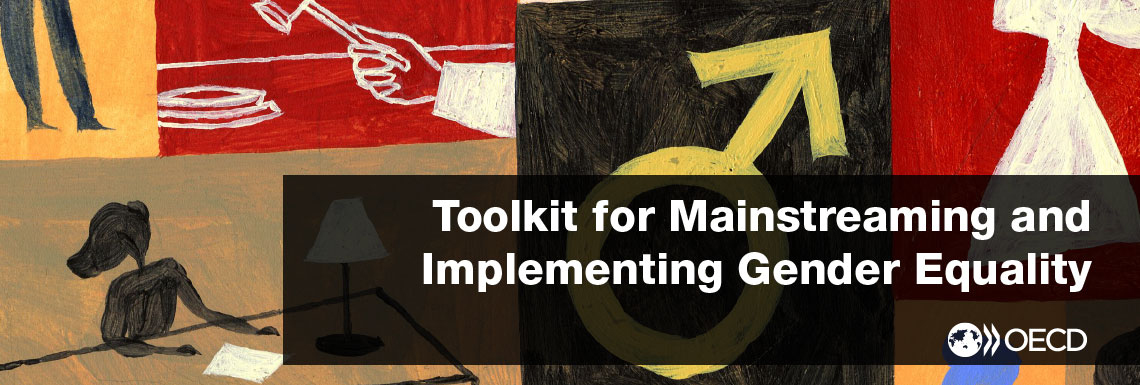Women’s professional development and advancement is effectively fostered within parliaments
SELF-ASSESSMENT QUESTION
- How effectively is women’s professional development and advancement fostered within parliaments?
WHY IS IT IMPORTANT?
Though women’s representation in elected and public office is slowly increasing, the ‘glass ceiling’ all too often prevents women’s advancement, particularly to key decision-making positions. Supporting and facilitating women’s advancement can help capture valuable voices, perspectives and expertise.
Human resource policies to support women’s advancement include induction training, gender equality training, and ensuring that women are represented in all professional development initiatives, training and seminars; delegations and participation in conferences; and in informal parliamentary initiatives. It is important to encourage the parliamentary leadership to participate in gender equality training, so that they can be role models for other members and staff,
Mentoring or peer-to-peer knowledge and experience sharing, either by pairing experienced women parliamentarians with newcomers or by building partnerships between women and men in the parliament, can also support women’s advancement.
Some parliaments are establishing cross-party bodies – gender or women’s caucuses, clubs, networks, reference groups and friendship groups. Such entities also help highlight discriminatory behaviour and practices.
ACTIONS TO CONSIDER
- Institutionalising equal opportunities for professional development in human resource policies;
- Ensuring the gender-sensitivity of trainers and capacity development topics;
- Seeking the input of gender experts in the development of training programs and curricula;
- Gender-sensitising induction trainings for new MPs on core parliamentary functions, procedures and ‘rules of the game’;
- Including parliamentary staff in gender capacity development initiatives;
- Institutionalising parliamentary gender learning through mandatory gender mainstreaming capacity development;
- Requiring the participation of parliamentary leadership in general or specialised gender equality trainings.
PITFALLS TO AVOID
- Insufficient requirements for gender training;
- Reserving responsibility for gender training only for gender equality mechanisms;
- Uneven mainstreaming of gender considerations in the organisation, monitoring and evaluation of all capacity development efforts;
- Insufficient consideration of possible gender roles and stereotypes in capacity development programmes (e.g., women as gender trainers; men as trainers in security and defence);
- Ignoring informal practices into account when transferring knowledge.
COUNTRY EXAMPLES
New Zealand
The parliament of New Zealand has established a mentoring system linking incumbents and new parliamentarians. This system has proven useful in building the skills and capacities of new women members in particular, providing them with insight into the informal ‘rules of the game’ of the parliament. The Swedish Speakers’ Reference Group arranges seminars and workshops on gender equality for all parliamentarians, officials and staff and arranges a large public seminar on a yearly basis on a gender-related topic.
Austria
The Austrian parliament supports equal opportunities for the advancement of parliamentary staff through the development of a formal Advancement Plan, which consists of measures to ensure equal access to training opportunities, measures to ensure the involvement of senior managers and heads of departments in training activities, and the nomination of an individual to oversee equal opportunities in advancement and awareness raising. To support women’s advancement within the administration of the German parliament, the Bundestag organises special and advanced training programmes specifically for women.
United Kingdom
In many parliaments, political parties drive professional development and women’s advancement initiatives for their members. In the United Kingdom, for example, the Fabian Women’s Network organises awareness raising and capacity development activities on the margins of party Congresses and works closely with other groups and factions of the Labour Party to promote joint interests, such as women’s entrepreneurship. The Fabian Women’s Mentoring Scheme, established in 2011, encourages young women to apply to be mentored by a senior woman politician for ten months; the program includes study trips to the London and European parliaments.
Finland
The Finnish Network of Women Parliamentarians supports women to attend international conferences on gender equality to develop networking skills, invites public speakers to update members on political issues, and has engaged with the network of male MPs established to combat gender-based violence and domestic violence.
Greece
Between 2009 – 2015, Greece implemented a training programme at the local level in view of increasing the number of women who stand for election. This initiative was developed complement the 2001 quota law which didn't bring about effective change on its own. These training sessions are expected to play a decisive role in gender mainstreaming at municipal and regional levels.
United Kingdom
To institutionalise and publicise learning on gender equality and women’s representation, the United Kingdom parliament hosts a website on women and parliaments, containing resources, publications, assessments, data and updates on parliamentary efforts to achieve gender equality. It contains information on historical efforts to realise women’s political rights, includes a Further Reading section that features handbooks and manuals to help women exercise their political voice, uploads all parliamentary reports dealing with gender and women’s rights, including assessment reports, external reports and studies, and publicises reports on gender-related parliamentary events and speeches.

